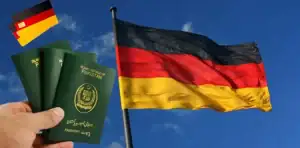STOCKHOLM – The authorities in Sweden have unveiled plans to overhaul the family reunification rules and possibly introduce expanded DNA testing to reduce immigration levels.
The decision announced on Tuesday means that the family reunification rules would be tightened as the government led by Conservative premier Ulf Kristersson, has pledged to tighten criteria such as income thresholds that determine the ability of foreign nationals to join relatives already residing in the country.
Kristersson has prioritized immigration and crime reduction in his administration’s agenda and in the same spirit, the authorities are contemplating broader use of DNA testing to verify familial relationships, especially in cases where identity cannot be otherwise confirmed, particularly among children.
Minister of Migration Maria Malmer Stenergard emphasized the government’s intention to bring Sweden’s family reunification policies more in line with stricter European standards.
“We acknowledge the fundamental right to family life, but current regulations are perceived as more lenient compared to our European counterparts,” Stenergard stated.
Ludvig Aspling, the spokesperson for the party Sweden Democrats, echoed these sentiments, stressing the need to reevaluate and tighten the criteria for family members eligible to obtain residence permits.
Since the 1990s, Sweden has welcomed a significant influx of migrants, primarily from war-torn regions including the former Yugoslavia, Syria, Afghanistan, Somalia, Iran, and Iraq.
As there are growing calls from far-right groups to tighten the rules regarding immigration, the government has initiated a comprehensive review of existing legislation and aims to present its findings by January 25, 2025.
The anti-immigration wave has also affected countries like the United Kingdom, Canada, and even Australia, all of whom have tightened the rules regarding visas. The countries have also pledged to reduce the entry of international students and laws to discourage students have also been introduced.
The government of Canada has also announced to reduce the intake of students by 35 percent as compared to 2023. Similarly, Australia has also increased the visa fee for international students in what appears to be a step to discourage students from coming to the country and later claiming residency..














